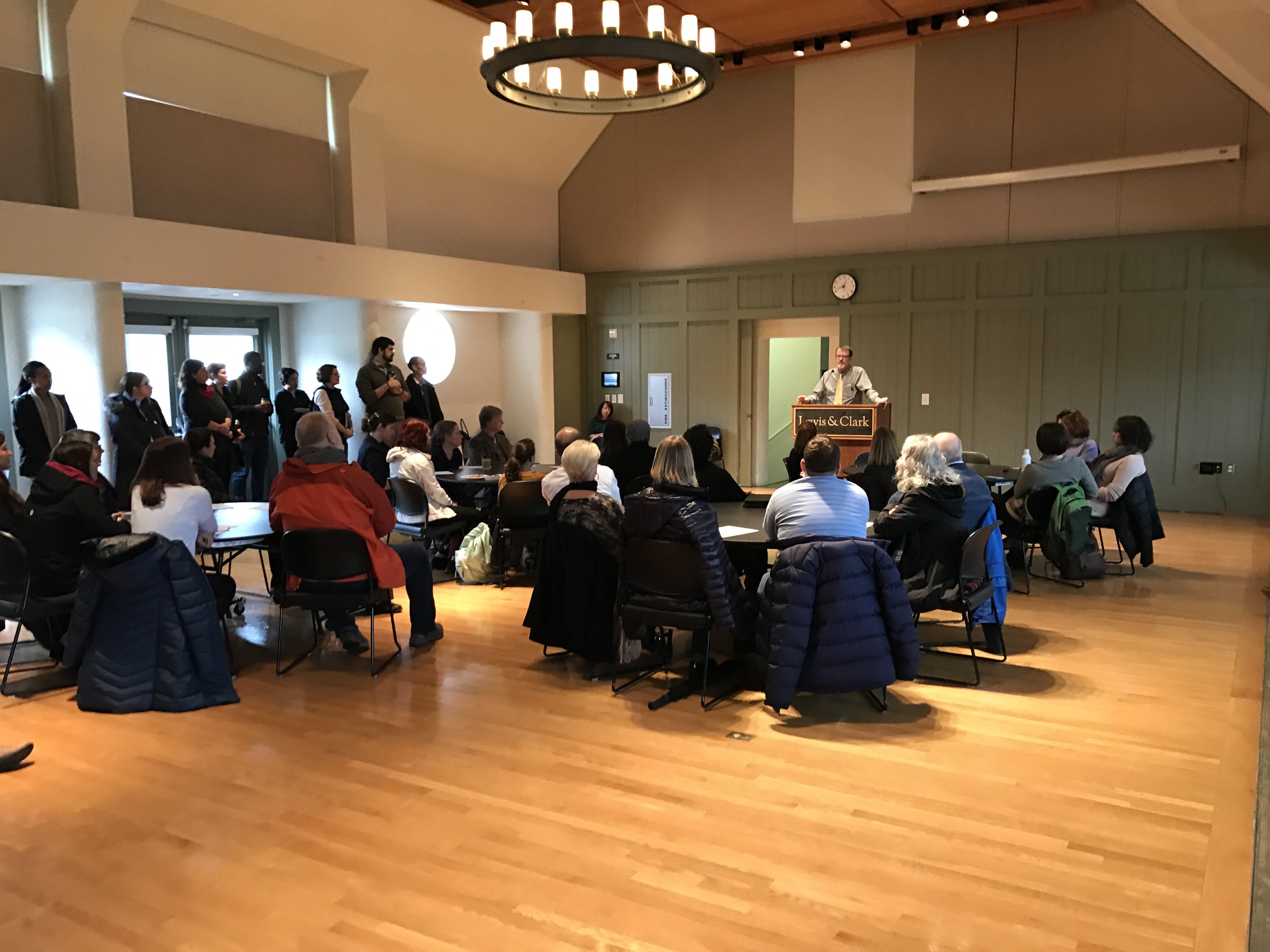
On Jan. 27, President Trump signed an executive order banning refugee resettlement from all countries for four months and from Syria indefinitely. Further, he suspended entry into the US from seven majority Muslim countries: Iran, Iraq, Libya, Somalia, Sudan, Syria and Yemen for three months.
Originally, the order also banned permanent legal residents (green card holders) from re-entering if they left. This issue has since been resolved by Homeland Security, but students, migrant workers, foreign professionals, athletes and others are still prohibited from returning should they leave. Visa holders may be processed case by case, but there is not yet a set screening process for re-entry.
Trump has also reduced the number of refugees allowed to seek asylum in the U.S. by 60,000— none of which will be Syrians, whose home continues to be ravaged by warfare.
Whether this order is technically legal is still up for debate. While it is illegal for Trump to prohibit entry based on religious or ethnic prejudice, the President does have the jurisdiction to suspend the entry of non-U.S. citizens so long as he deems them “detrimental to the interests of the country.”
Lewis and Clark’s Interim President David Ellis released a message of support for the international community, affirming that “such actions will have no impact, however, on the love, respect and support we have for each and every member of this community” and that “we will continue to work to ensure that LC is a safe place for all.”
Fortunately, no students, faculty or staff from any of the seven countries are on any of LC’s study abroad programs at this time.
On Jan. 31, Director of International Students and Scholars Brian White held a gathering of support in Smith Hall for those affected by executive order. Ellis, Dean of Students Anna Gonzalez, Director of the Counseling Service John Hancock, AES Director Laura Shier and all of the ISS and IME staff attended.
Approximately one hundred faculty, staff, and students gathered to discuss the implications of the ban at LC and offer support and resources. Among the speakers were White, Gonzalez, a law student who works for the office of Congressman Earl Blumenauer, and Dagmar Butte, a local immigration attorney and adjunct professor at our law school.
Following the gathering, Ellis said, “There was a lot of love in the room. The tone was one of both support and slight disbelief of the way the travel ban order was announced so suddenly, seemingly without the amount of thought, preparation and care we would ordinarily expect from the office of the President of the United States. I am proud to be a member of a community that demonstrates such support for our friends in uncertain times, but of course I would expect no less.”
Further, he ensures that LC is “committed to protecting the confidentiality of personal information of each community member…their immigration status, religious and other affiliations, etc. to the limits of the law” and that “we treasure their presence here.”
Gonzalez is currently working with the counseling center to make sure that the psychological needs of LC’s international community are considered. Educational sessions will also be provided to help the whole community get a better grasp on how the new ban affects colleges and universities.
White confirmed, “I have met with each LC international student from a country on the travel ban list to advise them specifically on how to maintain their lawful presence in the US and how the travel ban applies to each one specifically. Additionally, my staff and I have talked (on a walk-in basis) with additional international students who are anxious and/or worried that the ban might be extended to them in the future.”
In the wake of the proliferation of “fake news” and contrasting rumors, White emailed the international students with a link to a resources and facts page that clears up much of the confusion. It is titled “January 2017 Executive Order: Resources for LC International Students & Scholars” and can be found on the LC website.
Subscribe to the Mossy Log Newsletter
Stay up to date with the goings-on at Lewis & Clark! Get the top stories or your favorite section delivered to your inbox whenever we release a new issue.

Leave a Reply